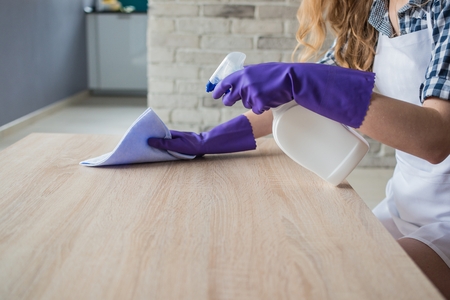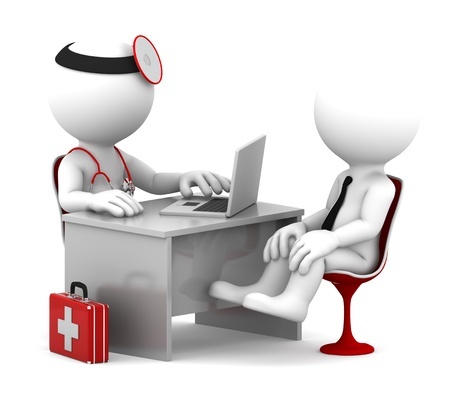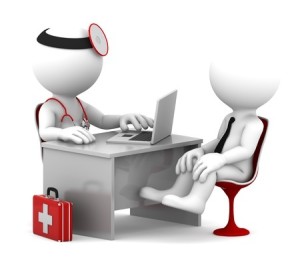Keep your children safe while having fun with art

There’s no doubt about it: Most children love art! But each year, children end up in emergency rooms due to accidents and mishaps while working on art projects at home.
Did you know that even those art supplies labeled as ‘non-toxic’ can have harmful effects if a child uses them in an unintended manner? That’s why adequate supervision is a must when allowing children to do art projects at home. It’s a good idea to keep art supplies such as paint and glue in a cabinet that’s out of reach of the youngest children. Another preventative measure: When selecting supplies, look for those designed for children that have the AP or CL seal from the Art and Creative Materials Institute (ACMI).
While your children are working on an art project, be on the lookout for hazards in the “workshop.” You may not think of your kitchen or living room as a production zone. Even so, when you’re applying glue and paint and cutting and assembling paper and other materials, it often involves chemicals and sharp objects. Chemicals can be absorbed by a child in a number of different ways. That’s why you’ll want to discourage children from applying paint to their skin unless it’s paint specifically for that type of use. And don’t serve a meal or snacks during an art project. Encourage children to thoroughly wash their hands after working with art supplies.
Don’t forget that babies and young children experience life as one long tasting adventure. Whatever is nearby may go directly into the mouth at any time. Preschoolers in particular have a penchant for putting objects in their mouths. And just like little children, animals can get into trouble in a matter of seconds. Rover may get curious and decide to sniff that glue-laden spoon you just set down on the table. Taking the dog to the vet on the spur of the moment can definitely put the chill on the fun.
For more information about art supply safety, check out the U.S. Consumer Product Safety Commission’s Art and Craft Safety Guide.



 Did you know that there’s a big difference among insurance agents — one that can have a significant impact on how much you pay for your insurance coverage and the type of service you receive? It’s true. While so-called ‘captive’ insurance agents typically represent only one insurance company, ‘independent’ insurance agents represent a number of different companies, offering one-stop shopping for a wider choice of policies for you and your business.
Did you know that there’s a big difference among insurance agents — one that can have a significant impact on how much you pay for your insurance coverage and the type of service you receive? It’s true. While so-called ‘captive’ insurance agents typically represent only one insurance company, ‘independent’ insurance agents represent a number of different companies, offering one-stop shopping for a wider choice of policies for you and your business.
 Like it or not, winter is fast approaching. Once you start the furnace, it not only starts heating your home, but drying out the air. That’s where humidifiers come in. Here are all the benefits the humble humidifier can provide all winter long:
Like it or not, winter is fast approaching. Once you start the furnace, it not only starts heating your home, but drying out the air. That’s where humidifiers come in. Here are all the benefits the humble humidifier can provide all winter long:
 Are germs lurking in your home? Check out five areas in most homes that bacteria and viruses are most commonly found — and how you can banish them before they make you sick:
Are germs lurking in your home? Check out five areas in most homes that bacteria and viruses are most commonly found — and how you can banish them before they make you sick:
 Did you know that most accidents involving children happen close to home? Kids love playgrounds, bounce houses and bicycles, but they all can lead to serious injury. Here are some ways you can keep your kids safe:
Did you know that most accidents involving children happen close to home? Kids love playgrounds, bounce houses and bicycles, but they all can lead to serious injury. Here are some ways you can keep your kids safe:
 The 2016-17 open enrollment season has almost arrived! Starting November 1, you’ll be able to shop around for and enroll in a health care plan.
The 2016-17 open enrollment season has almost arrived! Starting November 1, you’ll be able to shop around for and enroll in a health care plan.
 Sometimes we take the desire to be healthier and turn it into a large-scale project that is too overwhelming to tackle. Instead, we should focus on small aspects we can change. Consider these small ways you can become healthier from this moment:
Sometimes we take the desire to be healthier and turn it into a large-scale project that is too overwhelming to tackle. Instead, we should focus on small aspects we can change. Consider these small ways you can become healthier from this moment:
 Most of us know when our stress levels are rising. Maybe you can feel your body tense or your heart race. Maybe you experience stress only for a moment — or maybe for days and weeks. There are healthy ways to manage those stressful periods in life.
Most of us know when our stress levels are rising. Maybe you can feel your body tense or your heart race. Maybe you experience stress only for a moment — or maybe for days and weeks. There are healthy ways to manage those stressful periods in life.
 Your doctor isn’t the only one involved in keeping you healthy – you are too! Let’s look at some ways you can proactively take charge and further advocate for your health care as you work with your doctor.
Your doctor isn’t the only one involved in keeping you healthy – you are too! Let’s look at some ways you can proactively take charge and further advocate for your health care as you work with your doctor.
 You know that ample sleep and time to relax is important to your health, but it can be so difficult when you have an unending to-do list. How can you find rest when so many good things are pulling you in different directions? Perhaps these tips can help:
You know that ample sleep and time to relax is important to your health, but it can be so difficult when you have an unending to-do list. How can you find rest when so many good things are pulling you in different directions? Perhaps these tips can help: